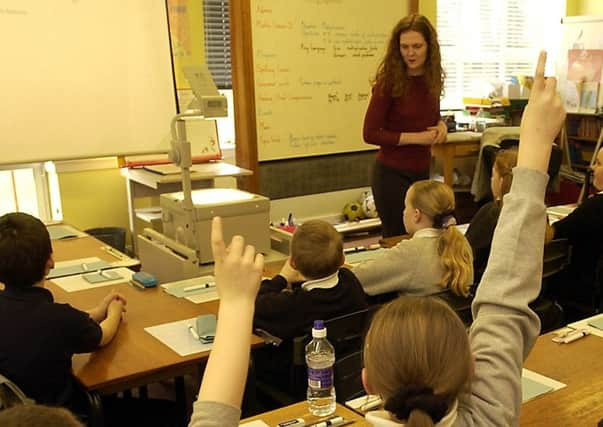Alarm over teaching nursery children in Scotland about consent


Academics and family groups last night expressed alarm at the proposal arguing that it was “ridiculous” to teach children as young as two or three about consent.
The row erupted after the Scottish Government published it document “Equally Safe: A deliver plan for Scotland’s strategy to prevent and eradicate violence against women and girls.”
Advertisement
Hide AdAdvertisement
Hide AdThe plan includes measures to teach school children the importance of consent and healthy relationships and will see Rape Crisis Scotland’s sexual violence prevention programme rolled out across a further 11 local authorities.
The plan, which contains 118 actions, also includes an ‘Equally Safe’ accreditation scheme which will be developed for employers to promote best practice in tackling gender based violence in the workforce, including sexual harassment.
But it was the section of the document suggesting that “early years” - i.e. pre-school children – should be taught “consent” that caused controversy.
In a section dealing with the Scottish Government’s review of Personal Social Education (PSE), the document listed a series of action plans to make progress when it comes to tackling violence against women.
One section said: “Through a review of Personal and Social Education (PSE), investigate how consent is taught within early years, primary and secondary schools.”
Dr Stuart Waiton, a senior lecturer in sociology at Abertay University, said it would be “ridiculous” for very young children to be taught about consent.
“This is very troubling,” Dr Waiton said. “One of the key things about a child’s development is having private space where they are free to make mistakes and learn from them. It is how you grow up.
“It is right to tell children about boundaries. But the presumption seems to be that we need to teach children otherwise they will become violent which is a fairly grotesque presumption particularly about children, especially small children.
Advertisement
Hide AdAdvertisement
Hide Ad“It would seem to be inappropriate to say the least in terms of the age, the younger children who don’t even know what sex is or what relationships are. “But they don’t seem to be able to leave this alone - they’ve got an obsession with early invention even when it makes no sense.
“It is very natural for young children to touch and cuddle and it almost as if they want to make that into something that is toxic.”
Norman Wells, Director of the Family Education Trust, said: “Politicians need to recognise that the school curriculum cannot provide the answer to every social ill. To prematurely introduce the minds of young children to thoughts and behaviours that are completely alien to their knowledge and experience would only confuse and disturb them unnecessarily. “There is no need for early years settings to promote the Scottish Government’s view of gender equality. Young children can be taught to treat other people - whether male or female - with respect without promoting an understanding of gender equality that fails to recognise that there are fundamental differences between men and women and between boys and girls.”
The issue of how children are educated about consent caused controversy this week when a mother of a six-year-old boy called for his school to ban Sleeping Beauty.
Sarah Hall of North Shields, Tyneside, said the fairy tale sent out the wrong message about sexual consent because the handsome prince kisses the princess while she is asleep and without asking permission.
Last night the Government emphasised that consent was only one aspect of PSE education.
As part of the Scottish Government’s ten year Mental Health Strategy, ministers are committed undertaking a review of PSE. PSE is a taught subject which covers aspects of planning for choices and changes, substance misuse, relationships, sexual health and parenthood, in addition to aspects of physical activity, sport and health.
A Scottish Government spokeswoman said: “We do not accept these claims. It is vital that children and young people gain knowledge of healthy relationships and behaviour and this pilot of the Whole Schools Approach engages children, staff and parents talk about this and wider gender equality issues. The review of personal social education, which is now under way, will look at how education authorities are delivering this important element of the curriculum.”
